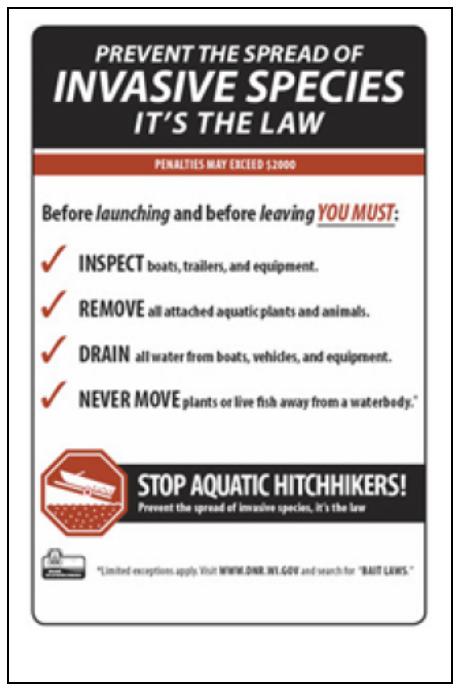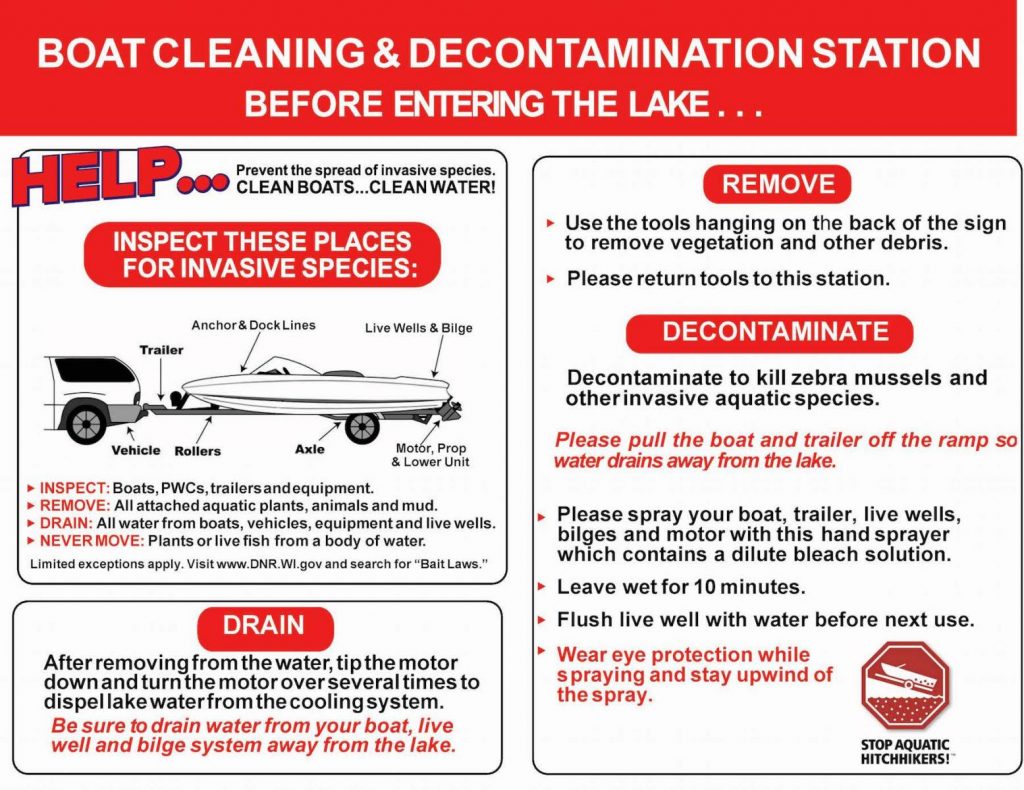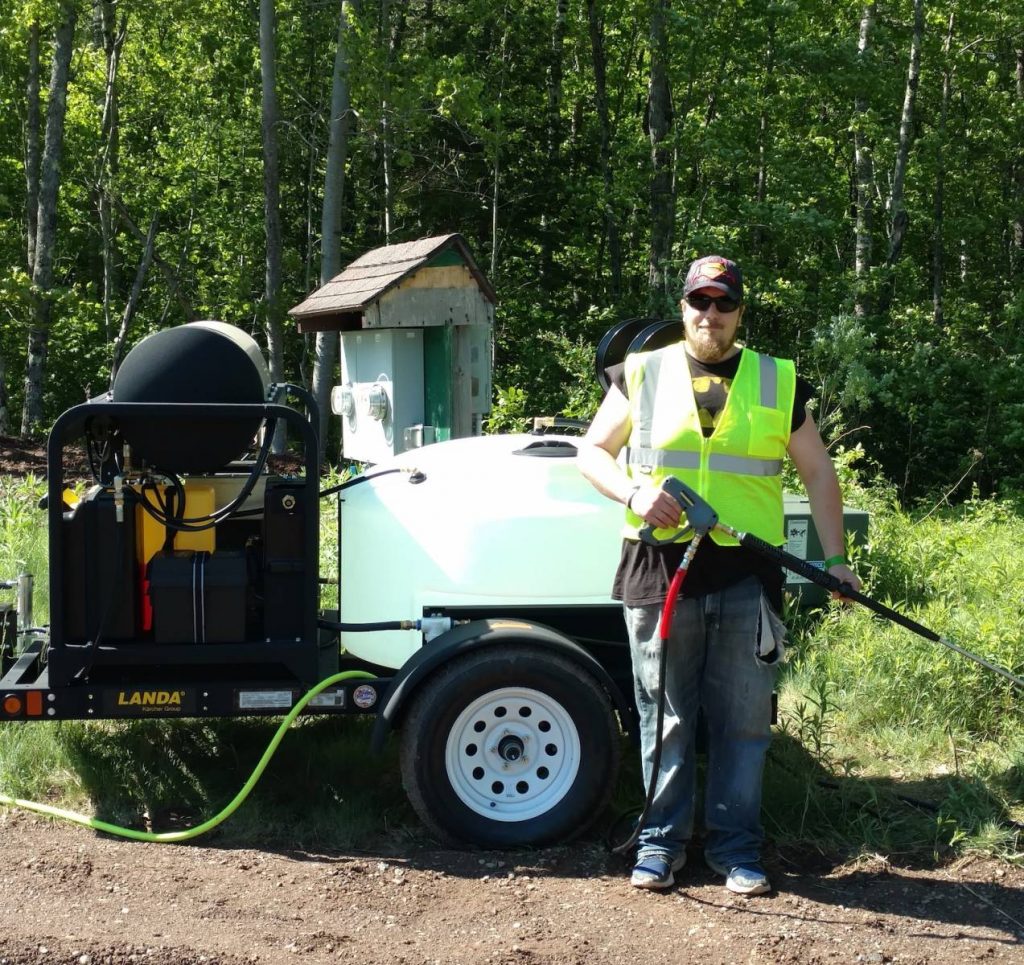Preventing Aquatic Invasive Species on Lake Owen
Prevention is the best strategy for keeping AIS out of Lake Owen and other area lakes. Invasive plants, animals and pests are taking a toll on Wisconsin’s lakes, rivers and landscapes. They cause damage to natural systems by displacing native species. Their aggressive growth creates mats of plants that inhibit navigation and make swimming, boating, and fishing unpleasant. Zebra mussels, a particularly, concerning AIS, can blanket shallow waters with sharp shells and attach to and cover docks, lifts, and boats. Once an AIS is established, it can be extremely expensive or even impossible to control. AIS such as Zebra Mussels and Eurasian Water Milfoil are present in nearby lakes and across MN and WI. To name just a few immediate threats: Zebra Mussels are found in Lake Superior and Big McKenzie Lake in Washburn County, and Eurasian Water Milfoil is present in Lake Namakagon and Lake Hayward.
Recommended AIS prevention is also the law in Wisconsin
Inspect boats, trailers, and equipment
Remove all attached aquatic plants and animals
Drain all water from boats, vehicles, and equipment
Never Move plants or live fish away from a water body
It is also important to let boats and equipment DRY in the sun for at least 5 days before using them in a different water body. Note: it is not possible to drain all of the water from boats, and zebra mussel larva can live in remaining water for several days – especially in wake boat ballast tanks!
Clean Boats, Clean Waters staff monitor the Lake Owen public boat landings to encourage visitors to follow these important prevention steps. We also have aquatic invasive species decontamination stations at the boat landings. At the US Forest Service landing at the Two Lakes Campground and at Otter Bay Resort we use a mild bleach solution to remove aquatic invasive species from boats and equipment. Landing visitors are assisted by LOA staff. We also provide informational handouts.

At the North Landing where most visitors enter Lake Owen our BEST option is to use hot water and/or high pressure washing to remove AIS. Hot water (140F) kills AIS, even the larval form of Zebra Mussels in 10 seconds. In more sensitive areas such as live wells, bilges, and ballast tanks, 120F water is used and held for a slightly longer period of time (2 minutes). The Lake Owen Association received approval from the US Forest Service to site our decontamination station along the road to the North Outlet Landing.
Wisconsin Department of Natural Resources grants support these activities.


